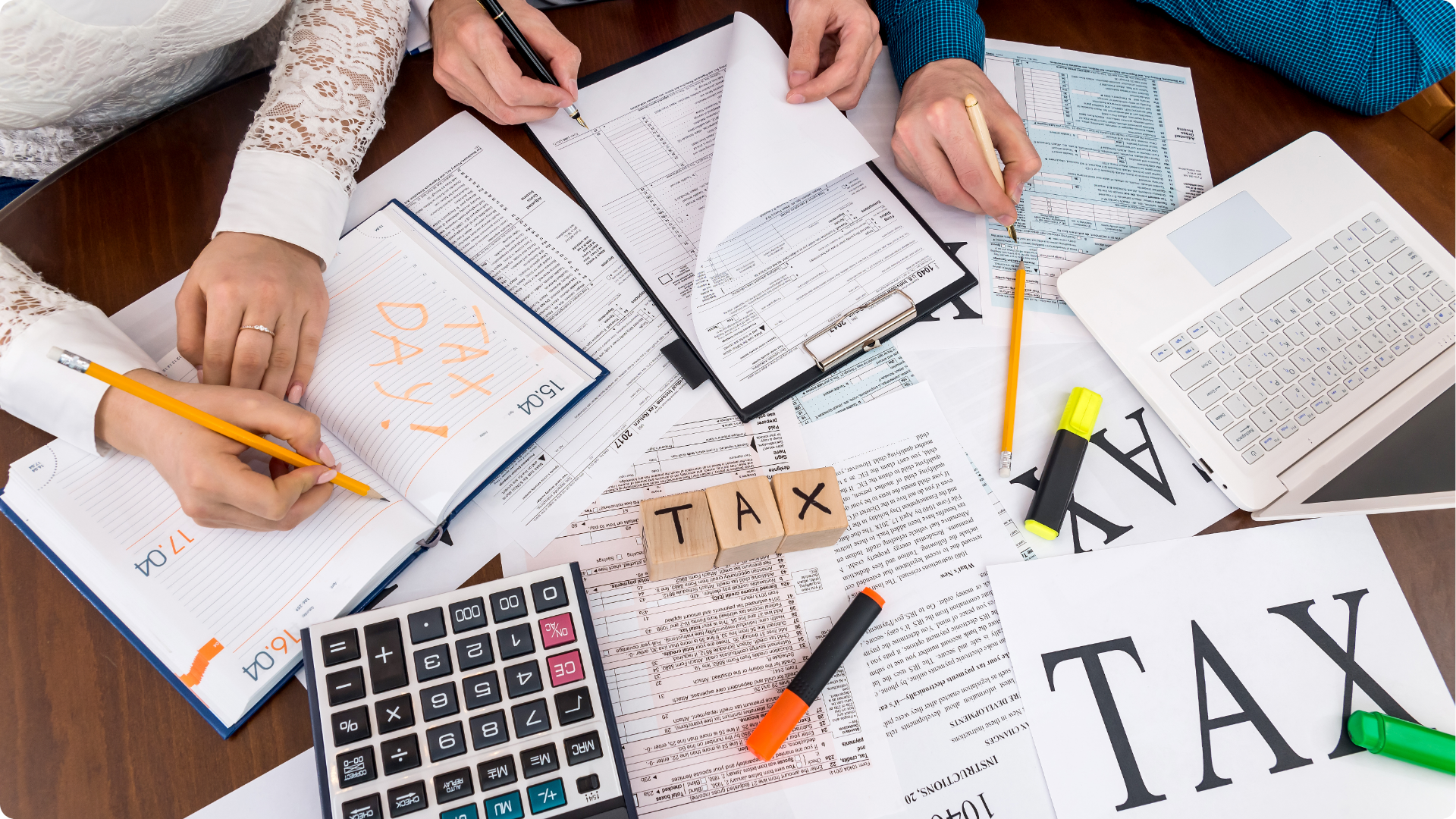Excise Tax 101: Definition, Examples, State vs. Federal
Here’s your crash course on excise taxes. From a simple definition to calculating excise tax and everything in between, we’ve compiled the ultimate beginner’s guide to excise tax.
What is an excise tax?
Excise taxes are indirect taxes levied on specific goods, services, and activities. Products like motor fuel, tobacco, and other heavily regulated goods are subject to excise taxes. Certain activities, like highway usage, can also be subject to excise taxes. Often, the cost of the tax is included in the cost of the product, meaning the end consumer doesn’t see the excise tax on their receipt.
Excise taxes are applied either as a per-unit tax or as a percentage of the price. Motor fuel is taxed by the gallon, but air travel is taxed as a percentage of the ticket cost. Federal and state jurisdictions determine the rate for excise taxes.
What is the difference between federal and state excise taxes?
Excise taxes can be levied by a variety of entities, including federal, state, and local jurisdictions. That means you may have to pay excise taxes to both federal and state agencies but also to your county or city.
Furthermore, excise taxes are filed much more frequently than individual income taxes. The jurisdiction sets the due dates, often every month or every quarter.
Federal excise taxes for motor fuel can be reported on Form 720. Federal tobacco and cigarette taxes are reported on Form 5000.24. State excise taxes must be reported in various forms depending on the product, where it was sold, and other factors.
Sales tax vs. excise tax
Sales tax applies to goods and services we purchase every day. Books, furniture, dry cleaning, movie tickets, etc. Essentials are often exempt from sales tax. Rent, utilities, groceries, etc.
The sales tax rate is determined by state and local governments. The rate might change depending on the good or service. Sales tax is usually levied as a percentage of the item’s price.
There are three main differences between sales tax and excise tax.
- Sales tax applies to almost anything you purchase, while excise tax only applies to specific goods and services.
- Sales tax is typically applied as a percentage of the sales price, while excise tax is usually applied at a per-unit rate.
- Sales tax is visible on your receipt, while excise tax is often applied before the sales price. Note: Excise taxes are often subject to sales tax, so you can pay tax on tax.
Who pays excise taxes?
Here’s where it gets tricky.
The cost of excise taxes is usually factored into the cost of the product. So the end-consumer might be paying for excise taxes but they won’t see it on the receipt.
The real question is: who’s responsible for collecting excise taxes?
The quick answer is that it depends on the product being taxed.
For example, tobacco excise taxes are collected by the distributor, wholesaler, and/or retailer.
Of course, there are always exceptions. It all depends on who’s buying the product, what it’s being used for, and where it’s going. Sometimes the tax rate changes based on those factors, sometimes it’s exempt from the tax.
For example, in some states fuel is exempt from excise tax if it’s being used for aviation.
How often do you file?
Certain federal excise taxes are filed on Form 720 Federal Excise Tax Return every quarter.
State excise taxes are typically filed monthly. The due dates vary by jurisdiction and the type of return being filed.
How to calculate excise tax
It’s time to calculate excise tax. Here’s an example based on tobacco.
Let’s say the tax rate on cigars in Alabama is 4 cents per 10 cigars. So if you’re a tobacco distributor and you purchase a case of 1,000 little cigars from the manufacturer. You’ll need to collect $4.00 in state tax on that case. Now let’s calculate the federal tax. Currently, the federal tax rate is $1.01 per 20-pack of cigars. So you’ll need to collect $50.50 in federal tax on that case. The total tax on your case of 1000 little cigars is $54.50.
Here’s the math:
1,000 little cigars in case
State tax rate: $0.04 / 10 cigars
Federal tax rate: $1.01 / 20 cigars
1000/10 = 100
1000/20 = 50
$0.04 x 100 = $4.00
$1.01 x 50 = $50.50
$4.00 + $50.50 = $54.50
Completing that process repeatedly for thousands of transactions can be time-consuming and error-prone. Not to mention the complex rules that are applied to determine if a product is taxable in a jurisdiction and determine the correct product category. Excise tax determination software helps ease the process.
Questions to ask when filing
Filing excise taxes is complicated. There are tens of thousands of different combinations that may apply based on your jurisdiction, the product, where that product is going, and what it’s being used for. Here are a couple of questions to keep in mind when filing:
- Who is the customer? Are they exempt?
- Where is the product going? Do I pay the origin or destination taxes?
- Has the product been diverted from the original destination?
- What is the product being used for?
Where does the tax revenue go?
It often depends on which tax is responsible for the revenue.
Some tobacco tax revenue goes to cancer research and smoking prevention and cessation programs.
Gas tax revenue is often used to fund infrastructure maintenance. And aviation fuel taxes fund air traffic control operations.
Some revenues go straight to the general fund in that jurisdiction and can be used for various programs. Other excise tax revenue can be used to fund future large capital projects.
This analysis is intended for informational purposes only and is not tax advice. For tax advice, consult your tax adviser. See the full disclaimer here.

